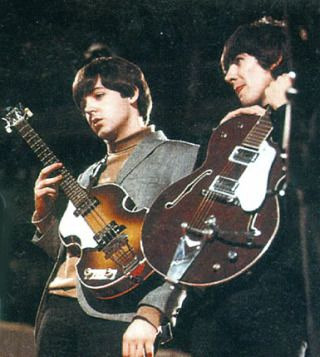Text
☆☆☆☆ Can we talk about 1970 Ringo Starr? ☆☆☆☆
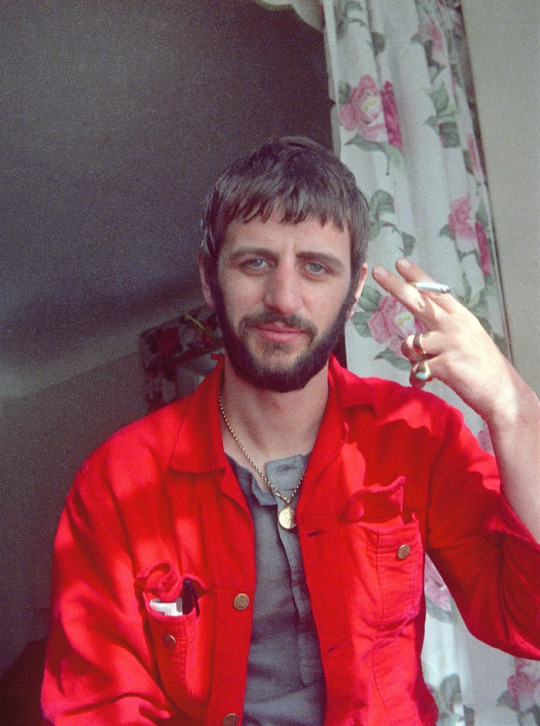
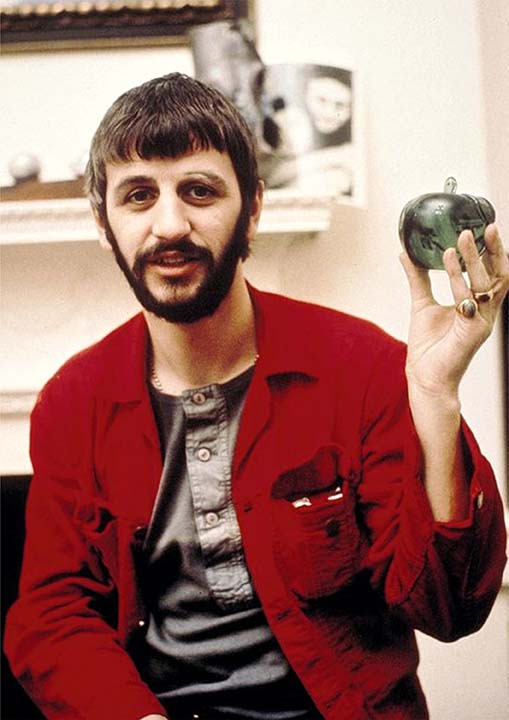


#this is anto#he has his own car#he sometimes has really good hash#but then sometimes it’s just tea leaves#he’ll get yeh back next time defny
33 notes
·
View notes
Text
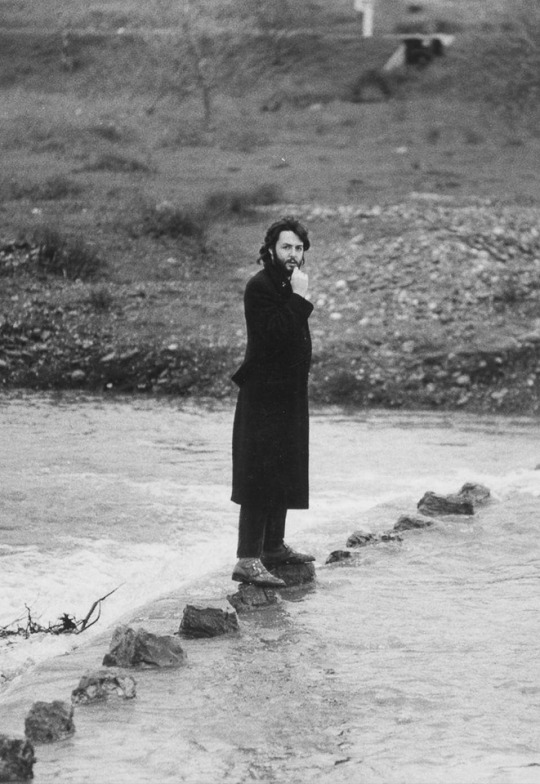

This photograph of Paul always reminds of the picture, Une Crise (1881) by the Belgian painter, Fernand Khnopff. The figure has been interpreted as Hamlet, or Werther, but is I think most convincingly seen as a self-portrait, of the artist in crisis.
13 notes
·
View notes
Audio
John Lennon’s parody of Bob Dylan.
“Sometimes I wish I was just George Harrison, you know, get all the answers. Oh my god. Oh my god”
6K notes
·
View notes
Text
What were you searching for in the old songs as you went through the manila envelope?
“Just heart, passion, something that actually made me go warm when I thought about it. 'She Said Yeah', I remember how I turned Mick Jagger on to that in the '60s. I'd always been meaning to do it and I never got around to it. I was up in the music room one day and Mick came round and I was playing some records to him and I remember Larry Williams' 'She Said Yeah' – and dancing around to it – and 'Aint Too Proud To Beg', The Tempations, he loved 'em. He actually [covered] both of them.
There was this one particular bar in Hamburg that had a jukebox and [The Beatles] used to go there and play pool with Derry and the Seniors, that was their hang-out. This jukebox had two great tunes on it, 'Smoke Gets In Your Eyes' by The Platters and 'Shake A Hand' by Little Richard and any time I was there I'd get a beer, play a bit of pool and listen to those two records. I could never find 'Shake A Hand' though, I never got the record. It's a gospel song, in America they know it by somebody else.
'Honey Hush' was a great memory for me. John and Stuart had an art student flat in Gambia [sic] Terrace, a big old-fashioned terrace with high-ceilinged rooms and the view out of the window was the Liverpool Cathedral. The first time George and I stayed out all night was there when I was about 15. And there was nothing there, we were used to beds and there was a mattress and John and Stuart were sleeping there and we were having to kip in chairs, undoing these Benzedrine inhalers because we'd read somewhere that if you undid them and chewed them they had an upper in them and we ended up talking all night. It was very frugal. It remembers better than it was, actually, no sleep, eyes burning, all that. But I remember in the morning John leaning out of this mattress, reaching over, yawning, you know, in his vest and underpants, and just putting this little Dansette on that was beside the bed and it was 'Honey Hush': "Come into this house, stop all of that yakety yak."
So it wasn't always the song or how good the singer was, it was how good my memory of it was, whether it was a really glowing hot ember of a memory. ”
“Paul McCartney: Run Devil Run.” MOJO (October 1999)
122 notes
·
View notes
Text
youtube
14 notes
·
View notes
Photo
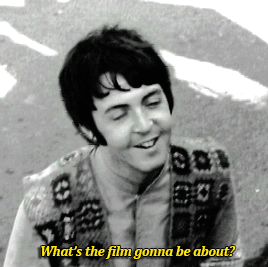
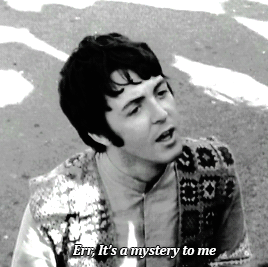


When asked about the Magical Mystery Tour
5K notes
·
View notes
Text
A Monkberry Moon Delight lyrical analysis because it is the greatest song of the 20th century
Monkberry Moon Delight is a song from Paul McCartney's 1971 album Ram. The song is generally considered to be surrealist 'nonsense' lyrics a la Lennon's late Beatles work like 'I am the Walrus' and 'Glass Onion'. But if we know anything about Paul (and Lennon-McCartney in general), he tends to put deeper emotions into his songs, often with out meaning to and without his direct knowledge:
"I don't write anything consciously, Sometime when I'm pissed off with John over Apple business a line might creep in." - Interview with Disc And Music Echo (Nov. 20, 1971)
"Songwriting is like psychiatry; you sit down and dredge up something that's inside, bring it out front." - Interview with Robert Palmer for the New York Times (April 25, 1982)
" But in a song, that's where you can [share your innermost thoughts]. That's the place to put them. You can start to reveal truths and feelings." - Interview with John Wilson fork BBC 4's (May 24, 2016)
And my favorite because it's y'know...in a song: "And when I'm gone, I leave my message in my song" - Beware My Love (Wings at the Speed of Sound, 1976)
All that being said, in my opinion, Monkberry Moon Delight is a projection of Paul's feelings of anxiety about his post-Beatles public/critical reception and his reaction to John Lennon's antagonism post-divorce. Specifically, he details his writing of Too Many People as a response to John's antagonism and the making of Ram as an attempt to recapture public attention/praise.
For context: Monkberry Moon Delight was first written/demoed at some point from May-August 1970 on his farm in Scotland. Paul's late 1969-1970 Scotland era is complicated. He often describes it as being one of the most difficult periods of his life because of the break-up of the Bealtes, the Apple financial troubles, his frayed relationship with John, and starting a whole new life which all compounded into a deep depression and alcohol abuse.
Let's start with the title and chorus. In Paul's own words, Monkberry Moon Delight comes from his kids mispronunciation of the word 'milk' and establishes MMD as a fantastical drink like 'Love Potion No. 9'. I think Paul obviously hides behind the surrealism of the lyric but its association with family and domesticity makes an interesting contrast. Though he is happy to be in his escapist domestic fantasy in Scotland, he juxtaposes this with the underlying pressure to be acclaimed (especially after being considered the greatest artist in the world for ten years). Though the song has a peppy, jaunty beat there is an air of anxiety developed through the songs key of C minor and the staccato of the piano and bass parts. His vocals also have a similar strained desperation like 'Oh! Darling'.
The lyrics:
So I sat in the attic, a piano up my nose
And the wind played a dreadful cantata
Paul starts with himself, writing. 'The attic' may be a reference to John Lennon's recording studio that he had built in his attic in Weybridge where he and Paul would often go to write.
"We nearly always went up to his little music room that he'd built at the top of the house, Daddy's Room, where we would get away from it all. I like to get away from people to songwrite, I don't like to do it in front of people. It's like sex for me" - Many Years from Now. Whether or not this is a direct reference to 'Daddy's Room', Paul is known to prefer small, confined spaces for songwriting.
'Piano up my nose' to me shows a rapt attention, leaning so close to his piano its almost up his nose. He is intently and passionately composing his 'dreadful cantata', this cantata I believe refers to "To Many People". Based on this record of the order of demos on the Ram cassette, it seems that Too Many People may have been written (or at least recorded) before Monkberry, which furthers my belief that Paul is making a meta narration of the writing of his song which he recognizes was very pointed or dreadful.
Sore was I from a crack of an enemy's hose
And the horrible sound of tomato
Here he describes what spurred him to writing this song, and this album as a whole. The 'crack from an enemy's hose' could refer to Allen Klein's treatment of Paul during the final months of the Beatles and his attempted mishandling of the release of McCartney (1970). (Note: The crack could also be from Phil Spector, the press, Ringo, George, Yoko or John; Paul is kind of getting shit from all sides right now). The 'sound of tomato' implies the idea of throwing tomatoes at an artist to express dislike or dissatisfaction, referencing the poor critical reception of McCartney (1970).
Ketchup, soup and puree
Don't get left behind
Ketchup, soup, and puree; liquidy tomatoes because splat, splat, splat go the critics. And ketchup because catch up pun.
Don't get left behind is the central theme of this song. He is worried that the public is going to forget about him while he's depressed, away in Scotland, and making critical flops. This is him desperately clinging onto the hearts of the public. Because we all know how much Paul needs to be liked.
When a rattle of rats had awoken
The sinews, the nerves, and the veins
The 'rattle of rats' could be any of the number of people who were getting on his nerves, sinews, and veins (pissing him tf off) in 1970. This could again be referencing the great "Let's all gang up on Paul McCartney" game of 1970 but because of the subsequent lyrics, I think this may be more specifically about John (and Yoko). Either way, it was these rats who annoyed him into getting to work.
My piano was boldly outspoken
And attempts to repeat his refrain
'Boldly outspoken' again connects this song to TMP. The line is similar to the TMP lyric 'This is crazy and baby, it's not like me' in the sense that both show how audacious he sees this songs as. In 'attempting to repeat his refrain' I think Paul is using the 'well he started it' justification for TMP because he's sees it as a repeat, of him rising to John's level of insults.
So I stood with a knot in my stomach and I gazed at that terrible sight
Of two youngsters concealed in a barrel, sucking Monkberry Moon Delight
Ah yes my favorite moment in all of music ever. This is the verse that really convinced me that this song may be referencing JohnandYoko. The 'youngsters in a barrel' alludes to John and Yoko's bag piece, where they would get into a black bag for...peace? As seen in Get Back, this particularly irked/disturbed Paul. "Go get in your bag. The Merseybeat award for couple of the year, goes to John and Yoko" (Get Back Episode 2). He also refers to them as 'the young lovers' in Get Back during the infamous January 13th 'and then there were two' conversation. Even though it makes him nervous and sick, part of Paul releasing TMP and Ram is to face up to the JohnandYoko powerhouse which was a non-insignificant portion of his early 1970 criticism.
Well I know my banana is older than the rest
and my hair is a tangled baretta
Here I think he is reasoning to the listener, the public, over why he thinks they've abandoned him. Paul recognizes that he has been in this music game a long time (so people may have grown bored of him) and has been depressed (and thus out of the game), his tangled 'baretta' of hair like the wily depression beard he grew out while in Scotland.
Also banana = dick, just so everyone is clear (can anyone find that banana poem from his poetry book? Also this just perpetuates my tinhat theory that all the banana milkshakes Paul got in Paris were just **** **** but I digress). Also something about Paul likening songwriting with sex so him not being 'musically desirable' is because...his music dick is old? Ok Paul.
I leave my pajamas to Billy Budapest
And I don't get the gist of your letter
This is the one lyric I am pretty unsure about. Not that every line has to fit perfectly into my interpretation but I genuinely could not make heads or tails of it. My initial interpretation was that this was referring to Billy Shears, and how during this period the Paul is dead theory regained popularity. This reference adds to the feeling of dissolution he builds in this verse.
But mike on the Beatles Bible seems to remember Billy Budapest as being a children's pajama designer though I have found not evidence of this. However going with this shot in the dark, leaving his pajamas to Billy Budapest could draw back to the theme of his current domesticity and occupation with his children.
The letter in question I believe refers to the infamous letter John and George wrote to Paul changing his McCartney release date that they had Ringo deliver which really set Paul off and kind of began the messiness of the divorce.
Catch Up, cats and kittens
Don't get left behind
Finally we get the pay off to the ketchup-catch up pun and see the resurgence of the theme; Paul feeling like he's falling behind his contemporaries and desperation to catch up.
In typical McCartney fashion, Monkberry Moon Delight is a seemingly shallow and superfluous song but actually reveals a lot about his inner turmoil at the time. Him dealing with the rejection by the critics and John by turning to his piano and creating the absolute banger that is Monkberry. This is why MMD is one of Paul's best, because of how quintessentially Paul it is. Veiling tough emotions behind ambiguous and surreal lyrics masked by a fun and light melody. Oh, the juxtaposition! Oh, the Lennon-McCartney of it all.
Anyways this is a barely organized rambling of thoughts but Monkberry Moon Delight deserves a mega analysis because it is genuinely one of the best songs Paul McCartney has ever made.
#i love all of this#i'd add that you could interpret#ketchup soup and puree#as a condiment#a starter#and baby food#perhaps a really awful dig at the other beatles?
96 notes
·
View notes
Note
I'd be curious to hear your Ob-la-di Ob-la-da take lol
I claimed Ob-la-di Ob-la-da as a political song. No, I'm not kidding.
Obviously, Ob-la-di Ob-la-da isn't a protest song. It's a perky ska-style number about the happy, everyday life of an immigrant family. And it was released in 1968, when immigration had just become the most inflammatory topic in British politics.
In spring 1968, the UK government proposed a new Race Relations bill, making it illegal to refuse housing, employment, or public services to anyone on the grounds of race or national origin. It was a response to racism, particularly against recent immigrants, especially those from the Caribbean.
Cue a lot more racism, most notoriously from politician Enoch Powell, who gave what is still commonly referred to today as the "Rivers of blood" speech. Powell ranted about sending "the immigrant and immigrant-descended population" back to the countries they or their families had once come from. He was particularly freaked out by the idea that, having come to Britain, people would settle down and - horrors - have babies, eventually outnumbering the white population. Powell was sacked by his party the next day, but he sparked a horrible wave of racist protest and abuse.
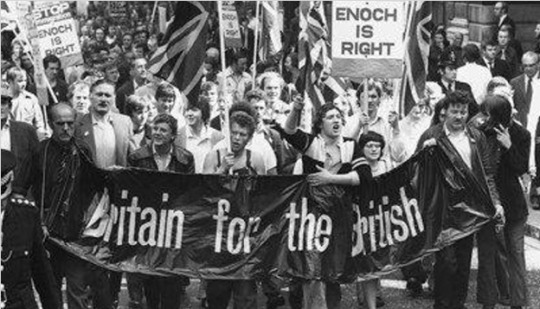
All this was brewing over the summer, as The Beatles worked on the White Album, and on this song. What is Ob-la-di Ob-la-da about? It's an everyday love story. The ska style frames Desmond and Molly as Jamaican - which, in a British context, strongly suggests that they're immigrants. The song builds a happy ending out of exactly the things that racists like Powell were terrified that immigrants would do. They work, get married, and have children, who grow up and help with the family business. Life going on, happy ever after.
The Beatles were certainly aware of the tensions sparked by Powell, immigration and the Race Relations Act; they were still talking about it, and trying to write a protest song about it, in the Get Back sessions in January 1969. Ob-la-di Ob-la-da doesn't talk directly about any of that. Its subjects - work, home, children - are the sort of thing that 1970s rock journalists would put down as Paul's normie bourgeois sensibilities.
But normie is where most people live. The song presents Desmond and Molly as deeply relatable. It assumes that their happy ending is something everyone can root for and sing along with. That is not an apolitical act, particularly not in Britain in 1968.
youtube
And people did sing along, in their millions. Ob-la-di was staggeringly popular. The Beatles didn't release it as a single in the UK or the US (though it topped charts in Australia, Japan and Europe). There were multiple competing cover versions. One by the band Marmalade went to No 1 in Britain, and sold about a million copies. Paul's own favourite cover was by The Bedrocks, whose members were all first-generation immigrants from the Caribbean.
(Obviously, there are other questions here about race, music, and appropriation; The Beatles, and most of the artists doing cover versions, are white people singing black music. Hello, history of western popular music.)
As I said, this isn't a protest song. But it has been sung in protest. @beatleshistoryblog found this great footage from a Women's March in London in 1971. Just listen to the first seconds: la la la la life goes on.
youtube
74 notes
·
View notes
Text

#i can't describe the feeling of looking down through this series of pictures#it was a shock#a revelation#i don't think we have the technology#and the timeline doesn't work#but ...
2 notes
·
View notes
Text

Another underappreciated arse moment
#this was their last concert-press-conference#(yes it's the “prostitutes and lesbians” one)#i didn't realise that
21 notes
·
View notes
Text
2K notes
·
View notes
Text
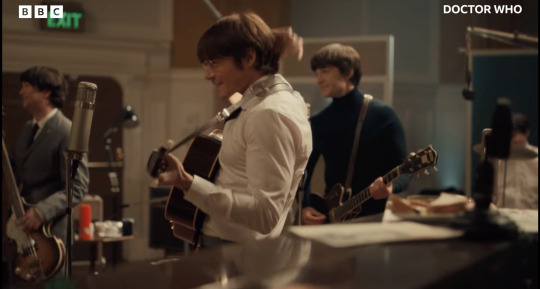

Is it me, or does this look like the wrong year for John to be wearing those glasses?
Actually, what year is this?
87 notes
·
View notes
Text

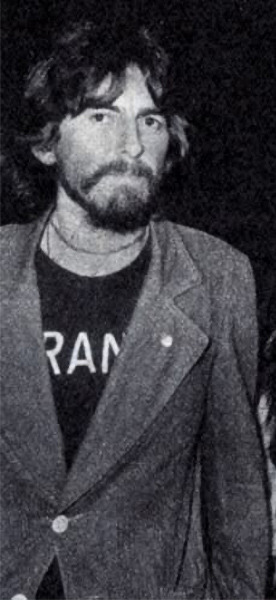

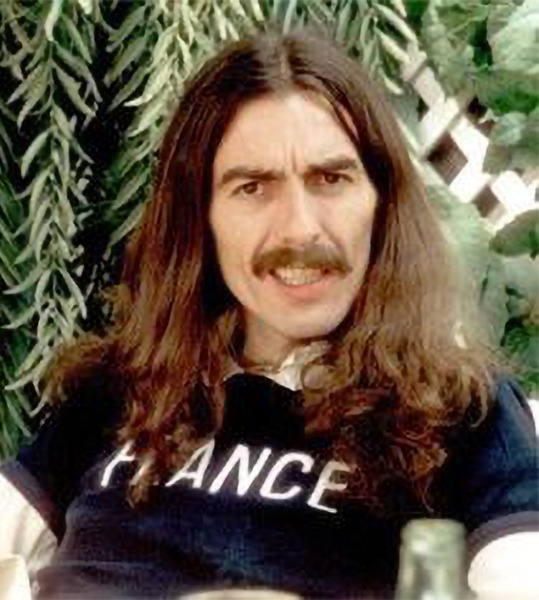
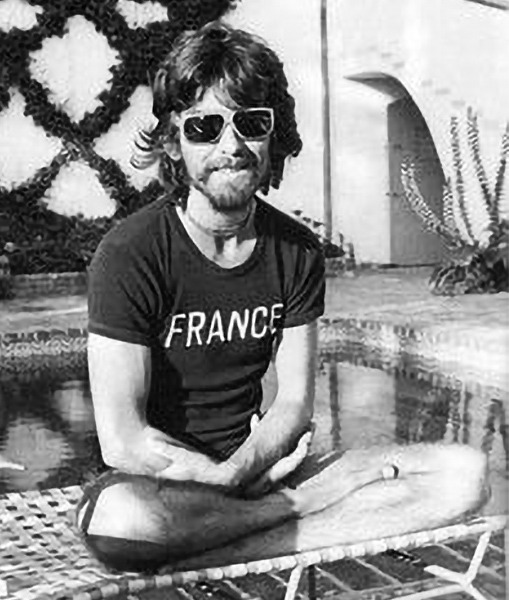
Moment of appreciation for George's beloved France t-shirt
#is this related at all to mlh using france as george’s code name?#accidentally posted this to my novelty side-blog#d'oh
178 notes
·
View notes
Text

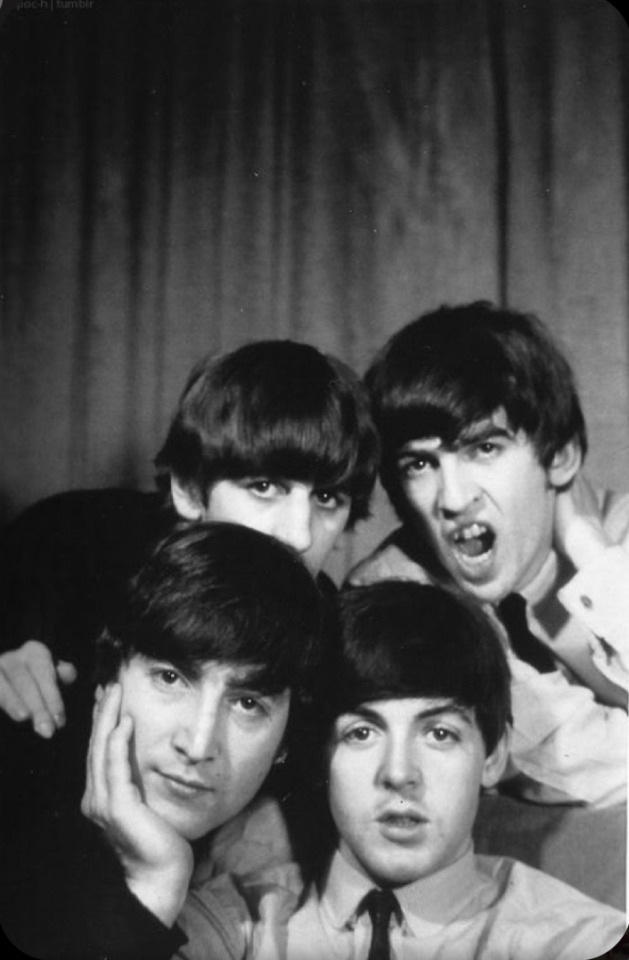
The four headed monster
79 notes
·
View notes

